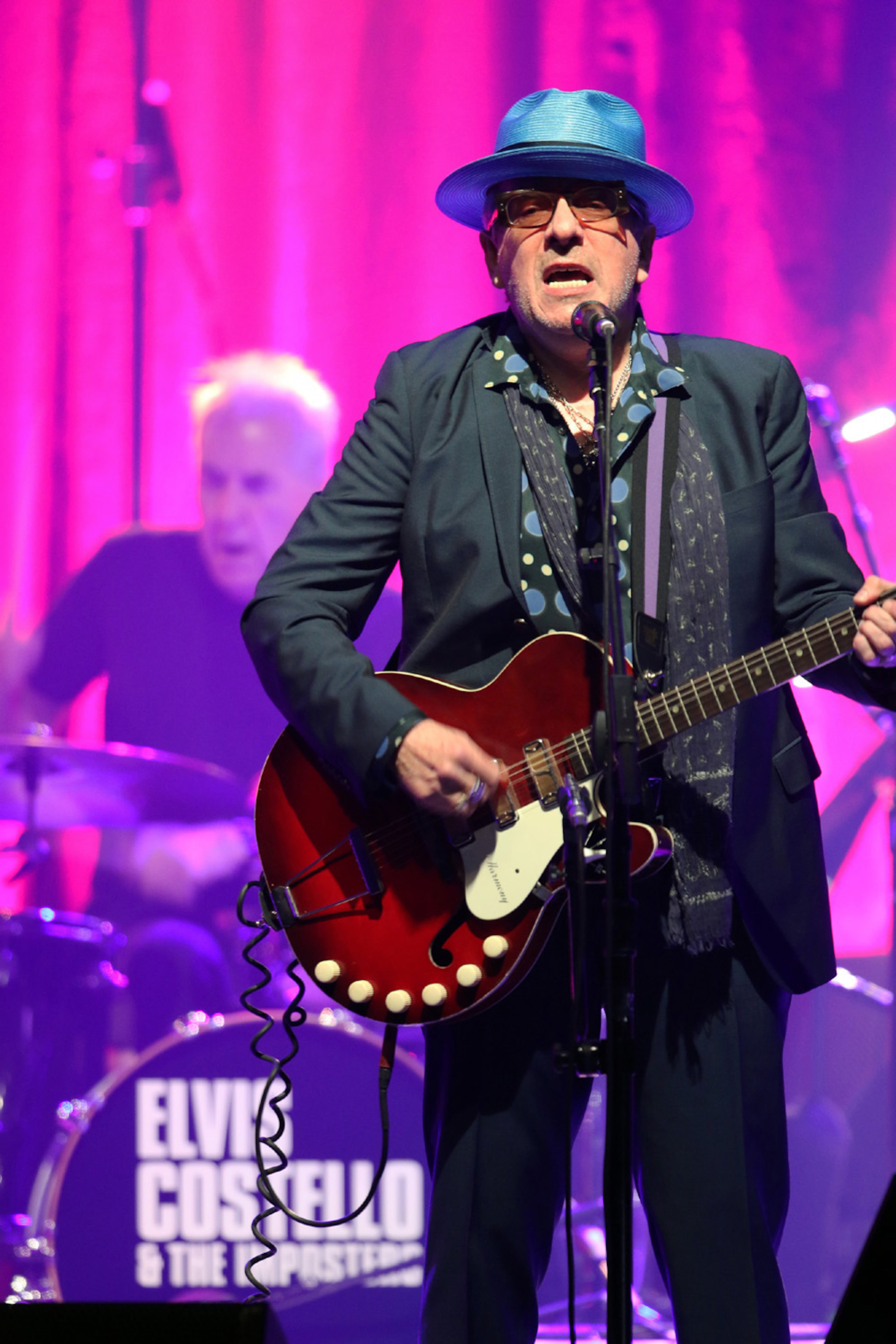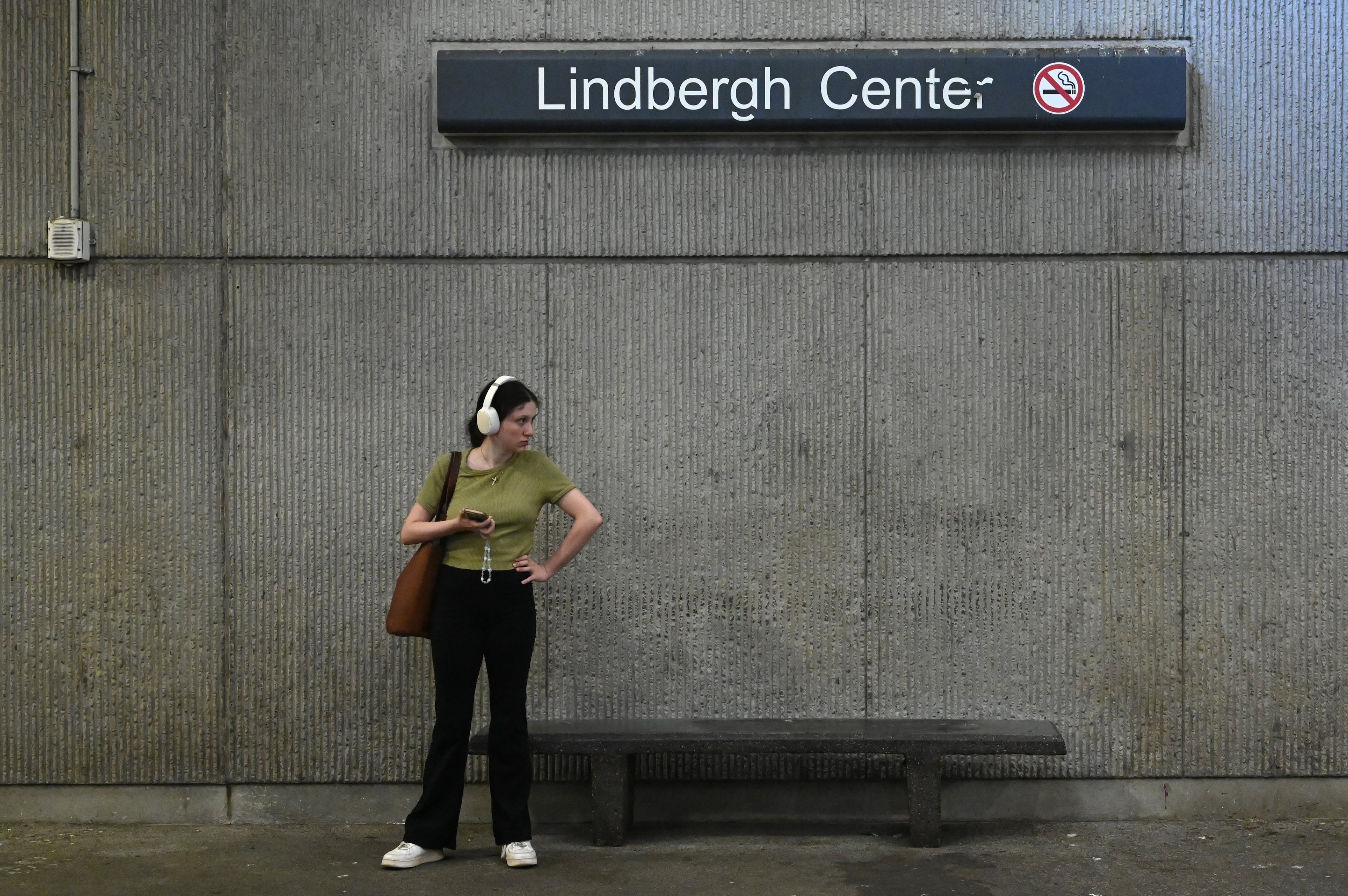CONCERT REVIEW | Elvis Costello embraces legendary rock hipster status























What has made Elvis Costello so cool over the decades is his trenchant desire to just do his thing without concern for popularity or critical acclaim. He didn’t chase the latest trends. He just found his groove and his own musical lane, building a dedicated fan base that has stuck with him without fail.
Those were the folks who showed up at a reasonably full Coca-Cola Roxy Tuesday night to fete and embrace Costello and his band the Impostors as well as a few special guests.

Over two and a half hours and 24 songs, Costello, wearing his signature fedora, covered more than four decades of his vast array of work, featuring cuts from his 1977 debut “My Aim is True” all the way to his 2020 album “Hey Clockface.”
While Costello was lumped into the British new wave sound in the late 1970s when he arrived on the scene, he wasn’t remotely like the Clash, Joy Division or the Sex Pistols. He was always his own man. And that has not changed one iota.
And unlike may of his peers, Costello didn’t choose to rely on his early hits that everyone in the crowd knows. Only a quarter of his setlist, including “Radio, Radio” and “Clubland” fit that ilk. Even then, he didn’t turn them all into nostalgic singalongs. “Watching the Detectives,” for instance, was given a slower, even darker, contemplative film noir feel with a smidge of reggae thrown in.
On Tuesday, he gave a nod to all the genres he loves: the blues, jazz, punk, rock, even a bit of Latin. At the same time, he didn’t bow to 21st century modernity in any sense of the word. Max Martin doesn’t exist in this universe.
Now 69 years old, Costello’s vocal abilities have remained potent although some fans who have seen him before said he wasn’t in top form. And he showed no ego when it came to passing along credit between songs: he cheerfully namechecked his bandmates not once but five or six times.
Besides bringing in legendary guitarist Charlie Sexton, Costello was joined by a trio of vets: trumpet player, arranger and composer Michael Leonhart, saxophonist and bandleader Donnie McCaslin and trombonist Ray Mason. The horn section gave a delightful jolt to many of Costello’s tunes. And McCaslin provided one of the night’s most notable highlights with a mesmerizing two-minute sax solo at the end of “Someone Took the Words Away.”

Costello’s musicianship remains impeccable. Whether he was on the piano emoting heartbreak with “The Greatest Love” or grooving to his classic tune “Pump it Up,” Costello was in command of the stage, always cool, never cold, always hip, never stale.
While there is a timelessness to his music, his on-stage patter could have been from 1977 or 1997. He made sly jokes about Groucho Marx, Karl Marx and Richard Marx in one single breath. He name-dropped Jimmy Durante. He told a story about finding novelty 45s from 1963 in a vinyl store in Fort Worth, Texas. He waxed romantic about hearing Bruce Springsteen for the first time in 1972 and wanting to emulate that sound ― if not the muscle shirts. And yes, he still hates Pink Floyd.
And though Costello joked early in the night that he might not sing songs with a woman’s name in it, he wasn’t cruel. He concluded the night with his still achingly powerful ballad “Alison” followed by “(What’s So Funny Bout) Peace, Love and Understanding,” a Nick Lowe tune that Costello made famous in 1978 but still feels resonant in 2024.


